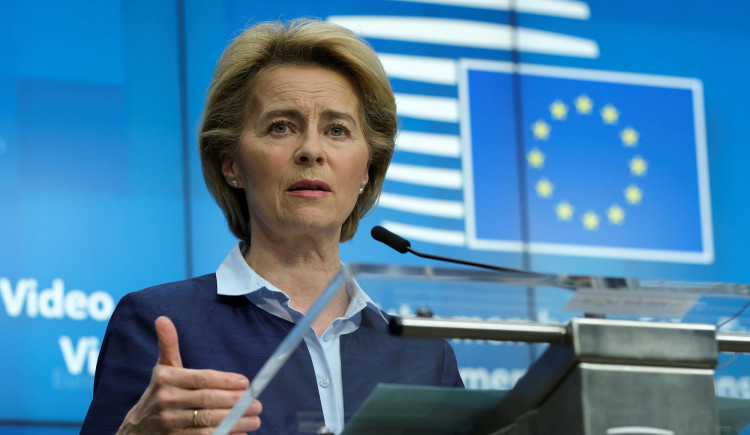The British pound extended gains Monday as negotiations on a trade deal with the European Union were extended beyond Sunday's deadline.
The rally in sterling may not last, some traders said Monday because Britain and the EU have repeatedly struggled to narrow their differences and there is still a risk that trade and business will be thrown into chaos without an agreement, CNBC reported.
"This is a temporary move higher in the pound, but it is still not clear that a no-deal scenario can be avoided," IG Securities in Tokyo senior foreign exchange strategist Junichi Ishikawa said.
"A partial deal with an agreement to negotiate further next year might save the pound, but anything less would lead to renewed selling. I would not buy sterling from here."
The British pound jumped by 0.73% to $1.3319, its biggest one-day gain since Dec. 1. Against the euro, sterling rose by 0.53% to 91.10 pence also the largest daily gain since Dec. 9. The euro edged up 0.22% to $1.2134.
"We don't expect too much influence from the numbers, however. Expect market reaction to Brexit to set the tone going into the open. While both sides failed to narrow the gap on the key differences, (The UK and EU) agreed to push forward with talks. The decision to continue talks should provide support going into the European open," FX Empire experts said.
European Commission president Ursula von der Leyen and British Prime Minister Boris Johnson have agreed to "go the extra mile" and will renew their talks in Brussels seeking to prevent a no-deal Brexit.
On Sunday, von der Leyen said "we think it is responsible at this point to go the extra mile." She said the Brexit trade talks with the UK would be extended and that both sides' negotiating teams will meet Monday.
The EC told embassies of European Union member-states "progress has been made" and "the next days will be important." Von der Leyen described her lengthy talks with Johnson as "constructive."
Johnson has told his cabinet to prepare for a no-deal Brexit when the transition period ends in three weeks. Johnson said over the weekend it was "very, very likely" the talks would end in failure.
Johnson refused to comment on what progress has been made but said he won't be "walking away" from his talks with von der Leyen.
"I'm afraid we're still very far apart on some key things, but where there's life, there's hope. We're going to keep talking to see what we can do," Johnson said. "The UK certainly won't be walking away from the talks."
He said von der Leyen had cast aside his idea to involve both Germany chancellor Angela Merkel and France president Emmanuel Macron in the talks.
"The commission is very determined to keep the negotiations the way that they have been done between us and that's fine," Johnson said.
"The most likely thing now is of course that we have to get ready for World Trade Organization terms, Australia terms. And don't forget everybody, we've made huge preparations for four and a half years...perhaps more intensively in the last couple of years.
"I think that the UK should continue to try," the PM said. "And I think that's what the people of this country would want me to do. We're going to continue to try and we're going to try with all our hearts and we'll be as creative as we possibly can. But what we can't do is compromise on that fundamental nature of what Brexit is all about."
The EC and the UK remain hung up on three issues: fisheries, competition rules and arbitration. Both sides, however, have found common ground over clauses in a potential deal that will ensure neither side can undercut the other as they set their own regulatory standards.
The biggest stumbling block remains the EU's demand for an "evolution" or "ratchet" clause in the treaty that will establish a mechanism to ensure a minimum baseline of environmental, social and labor standards evolves over time.






